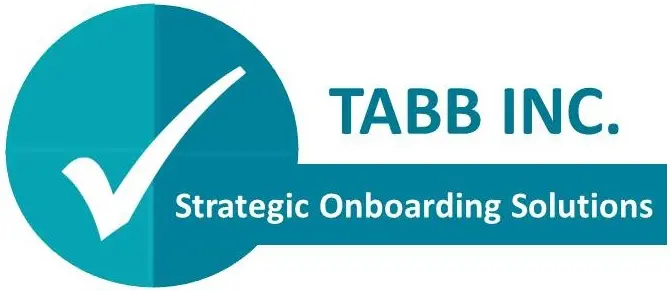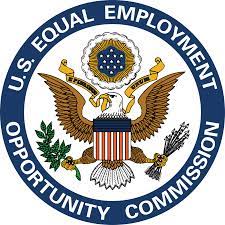ADP criminal record mistake results in a lawsuit
ADP’s background-check screening arm, incorrectly reported a Connecticut candidate was a convicted drug dealer, when in fact this individual did not have a record. ADP used its own proprietary software, “ADP Crim Radar,” and a third-party vendor, to conduct a search at a local courthouse. The ADP Crim Radar did not develop a criminal record,…
Read MoreHealthcare Students with a Criminal Record?
Don’t let a record ruin your career Healthcare Students with a Criminal Record If you are a student in the healthcare field, it is likely that at some point in time you may obtain practical experiences at a healthcare facility. Many facilities require a criminal background check prior to this experience. If you were arrested…
Read MoreHow long will your background vendor archive your screening reports?
Most vendors will only store your reports for one or two years A prospective healthcare client contacted our office regarding a Joint Commission audit that requested copies of background screenings that were conducted between five and 10 years ago. Their current background vendor could not provide copies for the audit. The average screening vendor will…
Read MoreWill Resumes Lose Their Relevance?
Resume A.I. vs. Applicant Tracking Systems A.I.? The ability of any candidate to create a logical and informative resume has been in question for as long as there have been resume writers and consultants actually doing the work. Now, a new kid on the block, Artificial Intelligence (A.I.), is aiming to put resume writers out…
Read MorePay Transparency: Which States Require Employers to Provide Salary Ranges?
There are currently 17 states in the U.S. that have laws around pay transparency. Generally speaking, these laws allow employees to freely discuss their pay. Come April of 2022, employers in New York City will be required to post the salary range for every job opening they have, including promotions and transfers. This is a result…
Read MoreRecruiting discrimination issues and artificial intelligence (AI) tools
Artificial Intelligence and Discrimination AI recruiting tools may result in unlawful discrimination against individuals. The U.S. Department of Justice (DOJ) and the U.S. Equal Employment Opportunity Commission (EEOC) Artificial Intelligence and Algorithmic Fairness Initiative recently released an updated guidance for employers that use AI to hire, monitor current employee performance, and determine pay or promotions. Two documents were prepared…
Read MoreThe Challenges of Recruiting Recruiters
Ultra-tight labor market has increased the value of recruiters to employers By Roy Maurer SHRM Online Manager/Editor, Talent Acquisition The Challenges of Recruiting Recruiters. Employers have been in a hiring frenzy since the recovery from the COVID-19 pandemic stabilized in 2021. The U.S. unemployment rate sits at 3.6 percent, the lowest rate since right before…
Read MoreHow to Write a Resume That Boosts Your Career in HR
How to write a resume that boost your career in HR, by Mary Southern, CareerAssassin. There is a significant difference between reading hundreds or thousands of resumes and writing your own. When was the last time you updated your resume? Is it still listing your experience like a job description? Will yours make it through…
Read MoreArtificial Intelligence, Algorithms & the EEOC -What Employers Must Know
Artificial Intelligence (AI), machine learning, and algorithms have been the subject of ongoing Equal Employment Opportunity Commission (EEOC) discriminatory violations. A newly released guidance from EEOC discusses how algorithmic hiring tools can be discriminatory against people with disabilities. Employers who utilize algorithmic processes should take note to ensure that your practices are not in violation…
Read MoreHow to get a reference when you’re new to the job market?
How important are job references? If you are new to the job market and are not sure how to get a reference our subsidiary, CAREERANDTALENTHUB, will work with you to easily interact with your references and obtain recommendations that will highlight your unique skills and value to a potential employer. How are you going to…
Read MoreThe Right Candidate For The Job: Tips For Interviewers
Post Written by the Forbes Human Resources Council The Forbes Human Resources Council suggest a few guidelines interviewers can use to ensure they choose the right candidate. As an interviewer, your role is like that of a gatekeeper. Your task is to ensure that any job candidate that makes it into the company deserves to…
Read MoreHiring Survey – What every company should know about hiring in 2022
A Greenhouse hiring survey of over 1,500 employees and job seekers discovered that 84 percent of respondents are looking for, or are open to, a new job in the next six months, while over 60 percent of job seekers are unimpressed by time-consuming recruitment processes and are demanding companies create a more modern recruiting experience,…
Read MoreFCRA Compliance Audit
When was the last time you conducted an FCRA audit of your onboarding practices to confirm FCRA compliance? As a matter of fairness to your candidates, and to avoid litigation, employers must ensure FCRA guidelines have been implemented and practiced. The Fair Credit Reporting Act (FCRA) prohibits employers from taking an adverse action against job applicants…
Read MoreLegal Marijuana Usage and Employers
As more states allow legal marijuana use, employers, providers and legislators grapple with the interplay between legal use, impairment and safety risks at work. The drug testing programs that employers have historically used as an effective deterrence. Detection tools are no longer useful when addressing marijuana. In the era of legalized marijuana, a new workplace…
Read MoreVendors outsourcing the screening process overseas
Did you know that the vast majority of research conducted during the background investigation process is outsourced overseas. Verification mills present the threat of identity theft. As result, your candidate’s Personally Identifiable Information (PII) is shipped thousands of miles away. And beyond the protection of United State privacy laws. Do you know where your candidate’s…
Read MoreFCRA Compliance
When was the last time you audited your onboarding processes to confirm FCRA compliance during background screening. Broken down to the basics, FCRA compliance can be easily implemented. Avoid FCRA errors with just a few simple steps. The most common issues that land employers in hot water includes: Failing to obtain the applicant’s written authorization…
Read MoreNew Jersey cannabis legalization and employers
New Jersey passed “The New Jersey Cannabis Regulatory, Enforcement Assistance, and Marketplace Modernization Act” (CREAMMA) into law to legalize and regulate marijuana use and possession for adults 21 years and older in February 2021. So how does that effect New Jersey employers? They are now prohibited from taking an adverse action against an individual due to recreational marijuana use. Employers can…
Read MoreNew York City amends Fair Chance Act
New York City Council has amended the Fair Chance Act (FCA) that prohibits inquiring into the criminal records of job applicants until after a conditional job offer. Effective in July of 2021, an employer can only revoke an offer based on one of three factors: The results of a criminal background check after the FCA process has been followed,…
Read MoreKroger second chance program
In January 2021, the Kroger grocery store chain recently announced their partnership with the city of Memphis to offer job opportunities to ex-offenders who graduated from the city’s second chance programs. TABB INC. supports initiatives that offer opportunities that will break the cycle of recidivism and poverty. Our subsidiary is actively working with second chance…
Read MoreIllinois criminal record guidelines
The Illinois legislature amended the Illinois Human Rights Act (IHRA). Using conviction records in employment-related decisions is considered to be a civil rights violation unless there is a “substantial relationship” between the criminal offense and the position or involve an “unreasonable risk”. This amendment mirrors the EEOC guidelines that have been in place for decades. Employers in…
Read More
